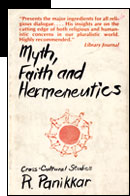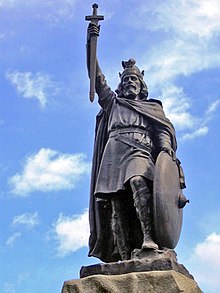
I met him when I became a bartender.
As my parents were non-drinkers, I wasn't all that familiar with the rich tapestry of alcoholic legerdemain. Being from Cleveland really didn't help much, either, as everyone there drank either whiskey or beer [a mixed drink meant whiskey poured into beer]. But I needed extra money [that is, any money at all] when I was a seminary student and managed to talk myself into a bartending job for a theological conference.
From time to time, the original General Theological Seminary in New York City would host one of these gatherings of pre-eminent theologians. These were rather intramural affairs where only a handful of seminarians would be invited by their mentors to spend a weekend of drinks, grand meals, and remarkable discussions that would serve as fodder for a dozen written explorations into the quest for God-ness.
To paraphrase my Scottish grandfather, I was never any professor's darlin', so I was never one of the chosen acolytes who got to bask in that corporate illumination. When I saw a notice that the next conferees would include many of those who were leading the grand theological discussion in which I was a mere microbe, I was glad to get invited one way or another.

Once upon a time I had been taught the importance of finding how to seize the initiative even in the most daunting of circumstance, a talent that had been improved in places far more difficult than a seminary's reception hall, so I employed every bit of charm and guile at my disposal to learn the job of bartender for the reception. All I needed was a bow tie and a rich knowledge of mixology. I had neither, of course, but initiative, again, was seized.
As it turned out, one of the secretaries in the spirituality center's office was sympathetic to my cause and also had an alarming knowledge of which drinks were preferred by which theologians. After a quick tutorial, I was ready. When the reception came, I was able to prepare Berkhof's bourbon and ginger ale, Neuhaus' scotch and soda, MacQuarrie's scotch and scotch [that's right] and Tillich's gimlet. Then the man himself came to the bar.
While I had never met Panikkar, I had read what was considered his masterwork; that book, more than any other that I had read by that time, had broadened and informed my thinking about spiritual possibility. "Might I have some ice water, please?" Well, that was a little bit of a let-down. After all, I was ready to make him anything from a Long Island Iced Tea to a Bayberry Breeze, but it did give me the chance I sought. "I enjoyed your book," I said, lamely. "Well, I didn't enjoy it, I...um...liked, that is, relished...no, I mean I...um...read it." Yes, after all that, I was de-articulated when the moment came.
For the next twenty minutes, even rebuffing an attempted interruption from Berkhof, Panikkar regaled me with tales of cross-cultural theology, history, and potential. I know I absent-mindedly poured some drinks for others, but I didn't want to break my conversation with Panikkar, so I may have been making rum martinis and vodka coladas, I don't know. But, it was generous of him to be willing to talk to the bartender and it reminded me that, for all of their academic excellence, the truly good theologians are always good pastors.
Why was he, in this collection of rather special men and women, the most interesting? From Panikkar's biography:
Raimundo Panikkar Alemany was born on Nov. 3, 1918, in Barcelona. He was a Roman Catholic priest and a professor of philosophy at the University of Madrid when he made his first trip to India in 1954. It was a turning point in his spiritual life and a homecoming of sorts: his father was a Hindu from the south of India who had married a Spanish Roman Catholic.
While studying Indian philosophy and religion at the University of Mysore and Banaras Hindu University, Mr. Panikkar befriended several Western monks seeking Eastern forms for the expression of their Christian beliefs. It was an eye-opening experience.
“I left Europe as a Christian, I discovered I was a Hindu and returned as a Buddhist without ever having ceased to be Christian,” he later wrote.
When the Spanish Civil War broke out, he fled to Bonn to continue his university studies, but while he was on vacation at home, Germany invaded Poland. He remained in Spain, earning a doctorate in philosophy at the University of Madrid in 1946 and a doctorate in chemistry in 1958.
In 1940 he had become friends with Josemaría Escrivá de Balaguer, the canonized founder of Opus Dei; Father Escrivá urged him to train for the priesthood. He was ordained in 1946 and for the next 20 years worked closely with Opus Dei. He earned a third doctorate, in theology, at the Lateran University in Rome in 1961.
In his dissertation, Mr. Panikkar compared the work of St. Thomas Aquinas with the interpretation of the Brahma Sutras, one of Hinduism’s fundamental texts, by the eighth-century Hindu philosopher Adi Sankara. Mr. Panikkar argued that Christ, as a universal symbol of the divine and the human intertwined, belonged to the world, not just to Christianity, and could be found under other names in other religions.
Yes, he had three doctoral degrees in the pursuit of truth, God, and science. He was a Roman priest who was also a Hindu. He was a Spaniard who was an Indian. There is no other way for him to have looked at the world, and to have built a theology from that perspective, that would not be fascinating and radically different. He made the best and the brightest in that reception hall look like, to me at least, a bunch of plonkers.
From the book that I enjoyed...liked...relished..read comes this quotation about the tension of the academic/pastoral life:
“...if I do not take my intellectual vocation seriously, putting it before everything else even at the risk of appearing inhuman, then I am also incapable of helping people in more concrete and proximate ways. Conversely, if I am not alert and ready to save people from a conflagration, that is to say, if I do not take my spiritual calling in all earnestness, sacrificing to it all else, even my own life, then I shall be unable to help in rescuing the manuscript. If I do not involve myself in the concrete issues of my time, and if I do not open my house to all the winds of the world, then anything I produce from an ivory tower will be barren and cursed. Yet if I do not shut doors and windows in order to concentrate on this work, then I will not be able to offer anything of value to my neighbors.”
He died just a few years ago; his obituary in the New York Times may be found
here. It's a good one, and I'm glad he was remembered. All of his books are still in print and I hope they are still read in classrooms somewhere.





